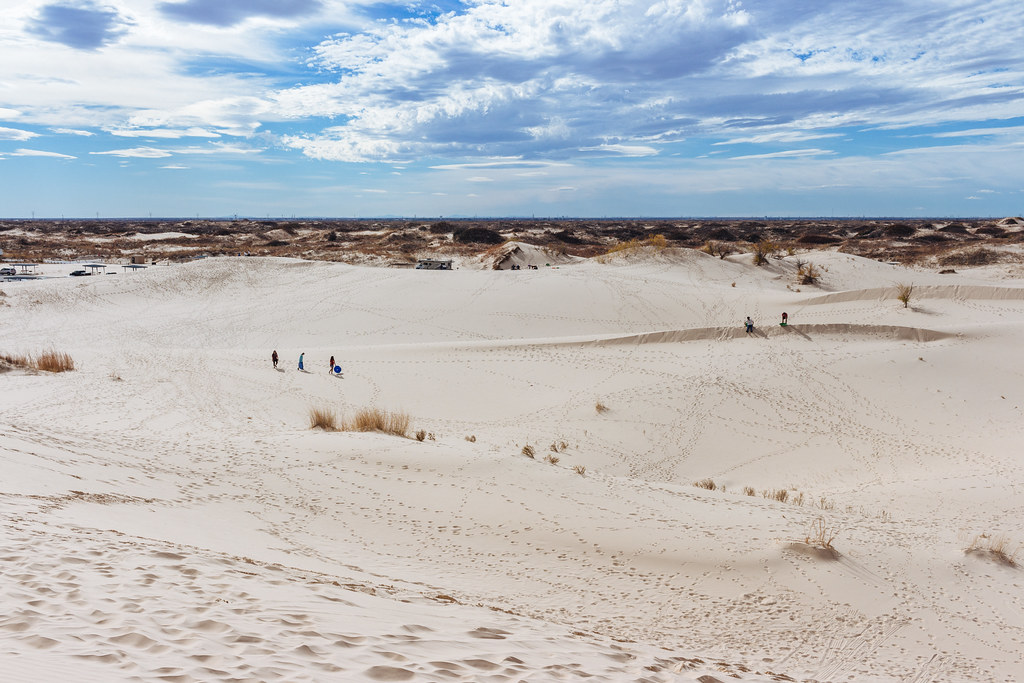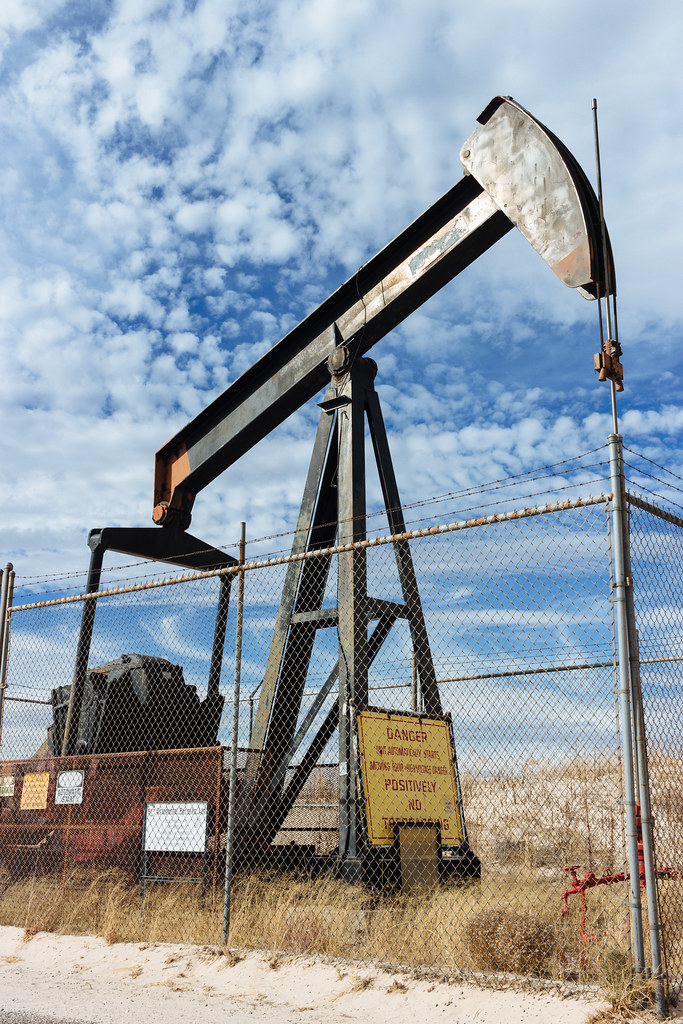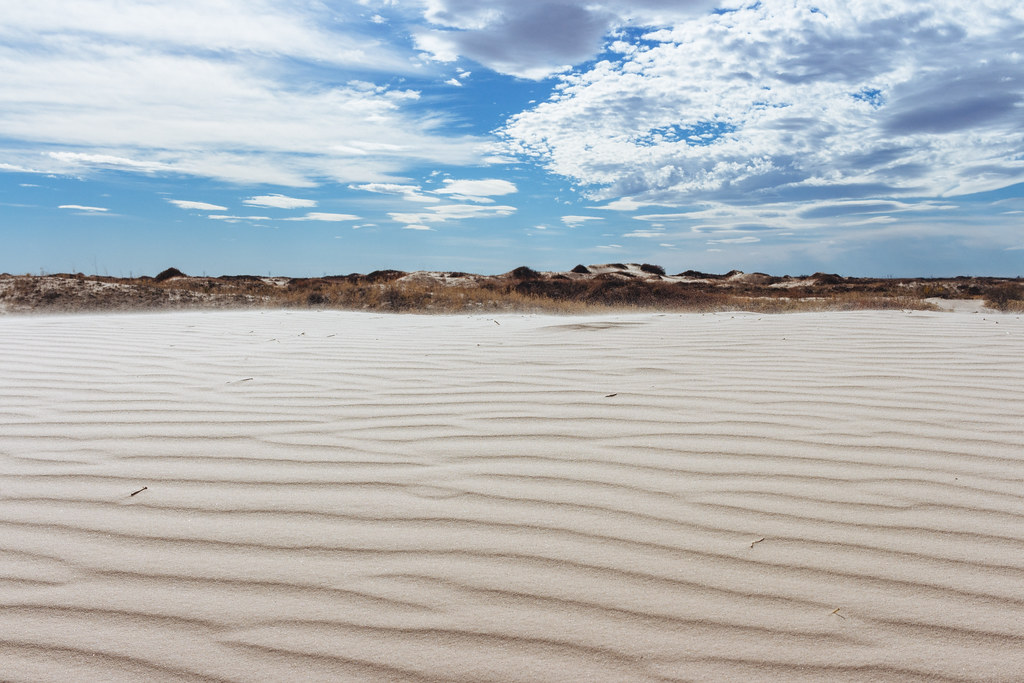Monahans Sandhills State Park in Monahans, Texas

|
| Monahans Sandhills State Park |
On my cross-country road trip last December from Phoenix to visit family in Dallas, I inevitably had to pass through the Permian Basin of west-central Texas. Sandwiched between the mountains of Far West Texas and the lower reaches of the Great Plains, this region rich in fossil fuels has gone through cycles of boom and bust over the decades—and even produced an oil businessman turned politician who would go on to become president: George H. W. Bush.
It’s currently enjoying a boom thanks to fracking, so the setting along Interstate 20 is pretty bleak, with highway access roads lined with the same warehouse copied literally hundreds of times over and plenty of “man camps” or temporary housing for oil workers.

|
| An oil pump jack within the park |
A bright spot in this leg of my journey was Monahans Sandhills State Park. This little swath of public land protects sand dunes in a region dedicated to natural resource extraction, and it was just the pitstop I needed to break up the monotony of the drive across the vastness of Texas.

|
| Sand floating above the dune |
It didn’t compare to White Sands National Park that I visited the day before; the dunes were much smaller, and the quartz sand was a pale orange unlike the brilliant white gypsum in the national park. Still, the sand dunes themselves felt otherworldly in the otherwise flat region defined by oil pump jacks and refineries. And the state park offered the same opportunities for picnicking, camping, and sledding.

|
| New growth |
The state park is but one 3,840-acre parcel of a larger, intermittent dune field that stretches north across Far West Texas into southern New Mexico. Unlike at Coral Pink Sand Dunes in Utah or White Sands in Mexico, you can’t see the mountains nearby that the sand dunes originated from. But that’s because these sand dunes began hundreds of miles north in the Sangre de Cristo Mountains near Santa Fe. Wind, rain, and snowmelt carried sediments down to the Pecos River, which then deposited them in floodplains across New Mexico and Texas. Wind again carried these tiny grains across the region, creating these sand dunes that have built up against the gentle inclines of the Llano Estacado plains.

|
| Footprints |
How to get there
You can find Monahans Sandhills State Park just five miles east of Monahans, Texas, and about 30 miles west of Odessa. Take exit 86 on Interstate Highway 20 for the park’s entrance.
Bring a hat, sunglasses, and sunscreen, as the light-colored sand will reflect all of that strong Texas sun right back in your face.

